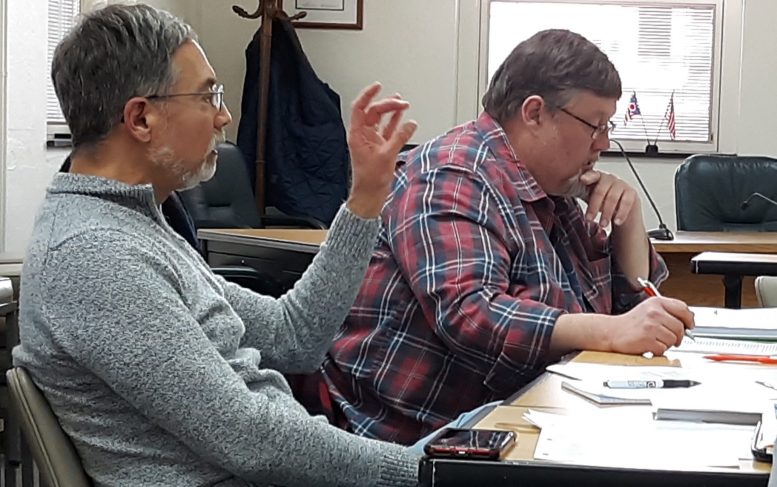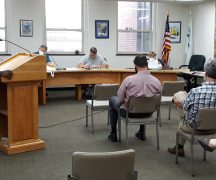By JAN LARSON McLAUGHLIN
BG Independent News
The coronavirus pandemic has led the city of Bowling Green to enact a hiring freeze and ask its department heads to reduce their operating budgets. The next steps may include elimination of salary increases for the current year and furlough days for employees.
That puts the city in a difficult position since contracts are being negotiated with five of the city’s unions this year – two for the police division, one for firefighters, one for the electric division, and one for public works and water/sewer divisions.
Two of those unions have already agreed to freeze salaries for the year.
On Monday evening, the finance committee of Bowling Green City Council heard projections and possible budget balancing strategies from City Finance Director Brian Bushong.
“Our position is going to be no salary increases this year,” Bushong said.
The city has been through tough fiscal periods before – the most recent in 2008-2010. So there are established budget-balancing strategies in place, Bushong said. Those possible steps, in order of priority are:
- Reduce expenditures through improved productivity.
- Enter into cooperative agreements.
- Use reserve fund balances.
- Shift expenses to other parties.
- Create new service fees or increase existing fees.
- Redistribution of income tax allocations.
- Reduce or eliminate services.
- Seek tax rate increases.
The city is expecting big hits to two of its biggest revenue sources – income tax and utility payments. Decreases are already being seen in electric use down 28% since many manufacturers and BGSU shut down for a couple months.
“That trickle down effect brings in less to the general fund,” Bushong said.
The dip in income tax revenue is yet to be seen since those revenues lag at least a month. But a loss of more than $1 million is expected.
Income tax revenue not only makes up a big chunk of the city’s general fund, but it also supports the sewer and water capital expenses, the fire division, police division, street repairs and recreation services.
According to a National League of Cities report, Ohio is among the top 10 states that will be most affected in terms of income tax losses. Ohio communities are projected to see a 30.4 revenue drop, Bushong said.
The report noted that for every 1% increase in unemployment, municipalities will experience an additional 3% loss of revenue.
Before COVID-19 hit, Wood County’s unemployment rate was 4% in February. By April, the local jobless rate had jumped to 17.1%.
Meanwhile, the city is seeing hits to other revenue sources. A list of those, and the projected losses are:
- Income tax – down $1.1 million
- Utility kilowatt tax – down $104,820
- Investment income – down $89,000
- Local government funding – down $127,472
- Ambulance fees – down $41,300
- Court costs – down $23,000
- Hotel-motel tax – down $40,163
- Civil division – down $18,000
- State patrol fines – down $11,040
- Court fines and forfeitures – down $8,000
Hit particularly hard will be the parks and recreation department, since in addition to a drop in its share of income tax revenue, it is projected to see a loss of $455,862 in fees normally charged for services. The pandemic has caused most parks and recreation services to be halted.
There are a few bright spots in the budget, according to Bushong.
“We had a very good first quarter,” Bushong said. “We were running ahead of our projections.”
Also, Wood County seems to be faring better than its neighbors.
“All of our surrounding counties have a higher unemployment than we do,” Bushong said.
“We certainly think we’re going to see a rebound,” Bushong said.
City Council finance committee members thanked Bushong for his report.
“This prepares us so we’re not shocked,” Greg Robinette said.
Bill Herald thanked Bushong for presenting possible scenarios and performing a “balancing act” with the budget.
“This gives us some knowledge of what we’re in for,” Sandy Rowland said, noting her concern of the impact if BGSU does not have in-person classes this fall. “There are so many things hanging out there.”





